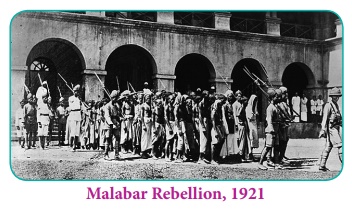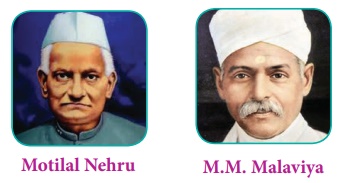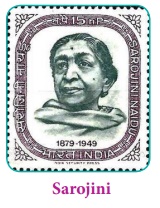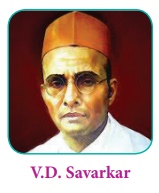Emergence of the All India Hindu Mahasabha
In the wake of the formation of the Muslim League and introduction of the Government of India Act of 1909, a move to start a Hindu organisation was in the air. In pursuance of the resolution passed at the fifth Punjab Hindu Conference at Ambala and the sixth conference at Ferozepur, the first all Indian Conference of Hindus was convened at Haridwar in 1915. The All India Hindu Mahasabha was started there with headquarters at Dehra Dun. Provincial Hindu Sabhas were started subsequently in UP, with headquarters at Allahabad and in Bombay and Bihar. While the sabhas in Bombay and Bihar were not active, there was little response in Madras and Bengal.
Predominantly urban in character, the Mahasabha was concentrated in the larger trading cities of north India, particularly in Allahabad, Kanpur, Benares, Lucknow and Lahore. In United Province, Bihar the Mahasabha, to a large extent was the creation of the educated middle class leaders who were also activists in the Congress. The Khilafat movement gave some respite to the separatist politics of the communalists. As a result, between 1920 and 1922, the Mahasabha ceased to function.
The entry of ulema into politics led Hindus to fear a revived and aggressive Islam. Even important Muslim leaders like Ali brothers had always been Khilafatists first and Congressmen second. The power of mobilisation on religious grounds demonstrated by the Muslims during the Khilafat movement motivated the Hindu communalists to imitate them in mobilising the Hindu masses. Suddhi movement was not a new phenomenon but in the post-Khilafat period it assumed new importance. In an effort to draw Hindus into the boycott of the visit of Prince of Wales in 1921, Swami Shradhananda tried to revive the Mahasabha by organizing cow-protection propaganda.
The bloody Malabar rebellion of 1921, where Muslim peasants were pitted against both the British rulers and Hindu landlords, gave another reason for the renewed campaign of the Hindu Mahasabha. Though the outbreak was basically an agrarian revolt, communal passion ran high in consequence of which Gandhi himself viewed it as a Hindu-Muslim conflict. Gandhi wanted Muslim leaders to tender a public apology for the happenings in Malabar.

Before the World War I, Britain had promised to safeguard the interests of the Caliph as well the Kaaba (the holiest seat of Islam). But after Turkey’s defeat in the War, they refused to keep their word. The stunned Muslim community showed its displeasure to the British government by starting the Khilafat movement to secure the Caliphate in Turkey.
(a) Communalism in United Provinces (UP)
The suspension of the non-cooperation movement in 1922 and the abolition of the Caliphate in 1924 left the Muslims in a state of frustration. In the aftermath of Non-Co-operation movement, the alliance between the Khilafatists and the Congress crumbled. There was a fresh spate of communal violence, as Hindus and Muslims, in the context of self-governing institutions created under the Act of 1919, began to stake their political claims and in the process vied with each other to acquire power and position. Of 968 delegates attending the sixth annual conference of the Hindu Mahasabha in Varanasi in August 1923, 56.7 came from the U.P. The United Provinces (UP), the Punjab, Delhi and Bihar together contributed 86.8 % of the delegates. Madras, Bombay and Bengal combined sent only 6.6% of the delegates. 1920s was a trying period for the Congress. This time the communal tension in the United Province was not only due to the zeal of Hindu and Muslim religious leaders, but was fuelled by the political rivalries of the Swarajists and Liberals.

In Allahabad, Motilal Nehru and Madan Mohan Malaviya confronted each other. When Nehru’s faction emerged victorious in the municipal elections of 1923, Malaviya’s faction began to exploit religious passions. The District Magistrate Crosthwaite who conducted the investigation reported: ‘The Malavia family have deliberately stirred up the Hindus and this has reacted on the Muslims.’
(b) The Hindu Mahasabha
In the Punjab communalism as a powerful movement had set in completely. In 1924 Lala Lajpat Rai openly advocated the partition of the Punjab into Hindu and Muslim Provinces. The Hindu Mahasabha, represented the forces of Hindu revivalism in the political domain, raised the slogan of ‘Akhand Hindustan’ against the Muslim League’s demand of separate electorates for Muslims. Ever since its inception, the Mahasabha’s role in the freedom struggle has been rather controversial. While not supportive of British rule, the Mahasabha did not offer its full support to the nationalist movement either.
Since the Indian National Congress had to mobilize the support of all classes and communities against foreign domination, the leaders of different communities could not press for principle of secularism firmly for the fear of losing the support of religious-minded groups. The Congress under the leadership of Gandhi held a number of unity conferences during this period, but to no avail.
(c) Delhi Conference of Muslims and their Proposals
One great outcome of the efforts at unity, however, was an offer by the Conference of Muslims, which met at Delhi on March 20, 1927 to give up separate electorates if four proposals were accepted. 1. the separation of Sind from Bombay 2. Reforms for the Frontier and Baluchistan 3. Representation by population in the Punjab and Bengal and 4. Thirty-three per cent seats for the Muslims in the Central Legislature.
Motilal Nehru and S. Srinvasan persuaded the All India Congress Committee to accept the Delhi proposals formulated by the Conference of the Muslims. But communalism had struck such deep roots that the initiative fell through. Gandhi commented that the Hindu-Muslim issue had passed out of human hands. Instead of seizing the opportunity to resolve the tangle, the Congress chose to drag its feet by appointing two committees, one to find out whether it was financially feasible to separate Sind from Bombay and the other to examine proportional representation as a means of safeguarding Muslim majorities. Jinnah who had taken the initiative to narrow down the breach between the two, and had been hailed the ambassador of Hindu-Muslim unity by Sarojini, felt let down as the Hindu Mahasabha members present at the All Parties Convention held in Calcutta in 1928 rejected all amendments and destroyed any possibility of unity. Thereafter, most of the Muslims were convinced that they would get a better deal from Government rather than from the Congress.
Expressing anguish over the development of sectarian nationalism, Gandhi wrote, ‘There are as many religions as there are individuals, but those who are conscious of the spirit of the nationality do not interfere with one another’s religion. If Hindus believe that India should be peopled only by Hindus, they are living in a dream land. The Hindus, the Sikhs, the Muhammedans, the Parsis and the Christians who have made their country are fellow countrymen and they will have to live in unity if only for their interest. In no part of the world are one nationality and one religion synonymous terms nor has it ever been so in India.’

(d) Communal Award and its Aftermath
The British Government was consistent in promoting communalism. Even the delegates for the second Round Table Conference were chosen on the basis of their communal bearings. After the failure of the Round Table Conferences, the British Prime Minister Ramsay MacDonald announced the Communal Award which further vitiated the political climate.

The Rashtriya Swayamsevak Sangh (R.S.S.) founded in 1925 was expanding and its volunteers had shot upto 1,00,000. K.B. Hedgewar, V.D. Savarkar and M.S. Golwalker were Hindu Rashtra and openly advocated that ‘the non-Hindu people in Hindustan must adopt the Hindu culture and language… they must cease to be foreigners or may stay in the country wholly subordinated to the Hindu Nation claiming nothing.’ V.D. Savarkar asserted that ‘We Hindus are a Nation by ourselves’. Though the Congress had forbidden its members from joining the Mahasabha or the R.S.S. as early as 1934, it was only in December 1938 that the Congress Working Committee declared Mahasabha membership to be a disqualification for remaining in the Congress.
